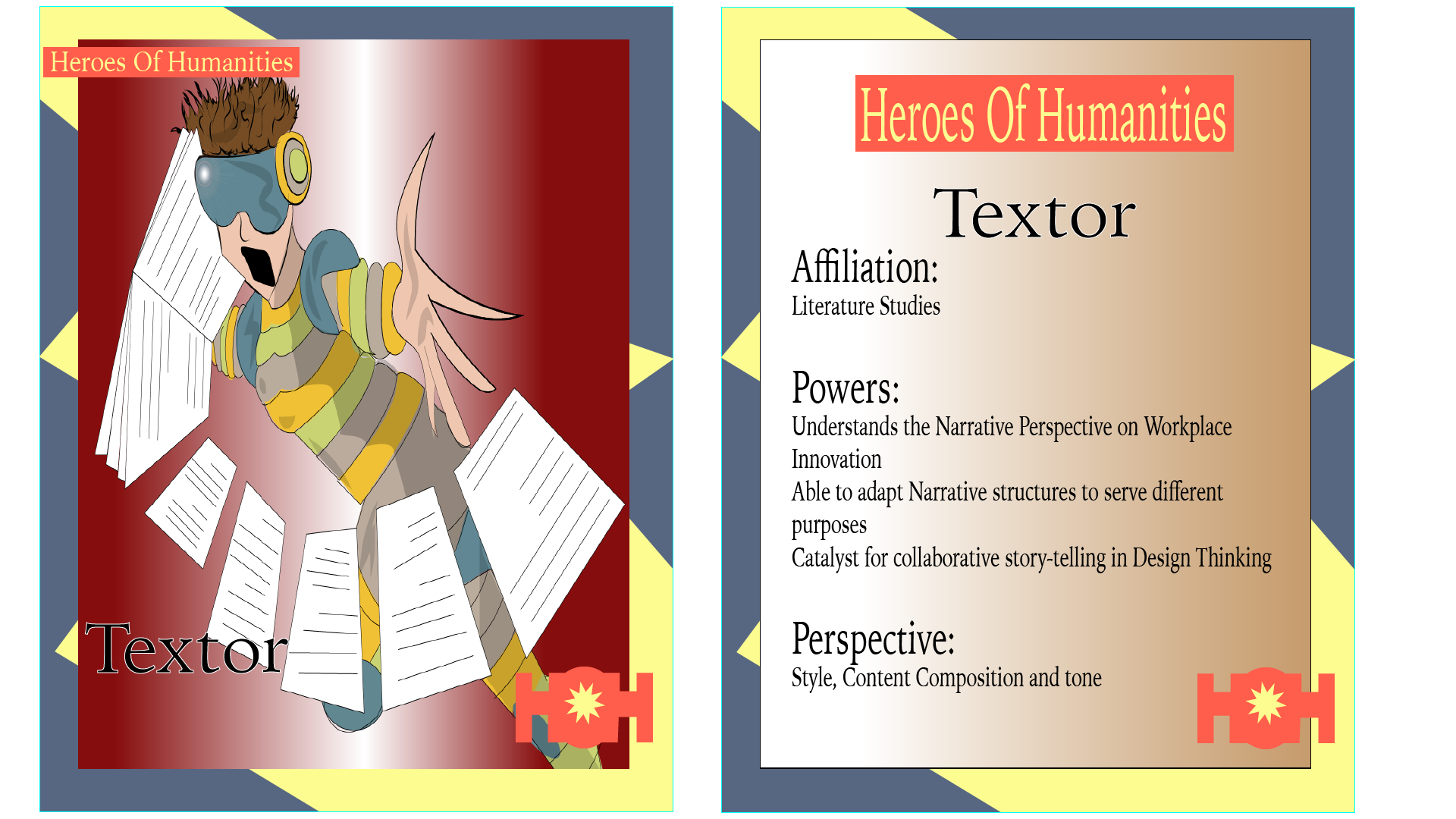In March 2024, WINCan’s Dr. Thomas Carey had three guest interactions (virtually) at the University of King’s College to work with students enrolled in a non-credit career development program called Liberal Arts Passport to Innovation. The Passport program is geared towards helping students frame their assets for employers and understand how their liberal arts skills and interests could be a fit with the innovation space. However, it does not teach innovation skills as such. The six student authors listed above were enthusiastic about adding two additional sessions to this co-curicular experience so that they could gain more familiarity with systematic approaches to innovation. A chapter from the WINCan Open Educational Resources (in the eCampus Ontario Open Library) on "Innovation Adaptation” was selected for this purpose and the class then decided to take this WINCan OER resources itself as the Innovation to be considered for adaptation in a pilot project.
Intrapreneurship as Workplace Innovation in Accountancy
This post presents our final proof-of-concept test of our prototype professional development Ladder of Opportunities in Workplace Innovation in the work domain of Accountancy. These tests were intended to identify how well the framework fits with what we know about workplace innovation in a specific workplace domain and to identify some of the context-specific issues to be addressed for the framework to be used productively. Previous posts looked at Job Crafting, Innovation Adaptation (including specific examples from the Audit area) and Design Innovation (with a focus on Design Thinking in Accountancy).
Workplace Innovation in Accountancy: Innovation Adaptation in Auditing
In previous posts, we outlined our prototype workplace innovation Ladder of Professional Development Opportunities and provided illustrations from the work domain of Accountancy for the first two opportunities (Job Crafting and Innovation Adaptation), along with a demonstration of how innovative developments in Accountancy practice have opened up new opportunities for employee-led Workplace Innovation by accountants.
In this post we follow up with examples from the specific Accountancy subfield of Auditing, to illustrate the dual goals of employee-led Workplace Innovation (improving organizational effectiveness and quality of work life), adaptation of innovative accounting practices from sources outside the firm, and the development of new innovator roles for accountants in Audit.
Case Stories of Job Crafting in Accountancy
Since Accountancy is a highly-regulated profession many people – including some accountants and higher education students in accountancy – have the impression that Job Crafting is a limited option within the profession. Our crafting examples here, from Jennifer and Candice, demonstrate some of the many ways that Job Crafting is commonly utilized by accountants… and how it will be needed even more as some of the changes in the profession outlined in our previous post come to fruition.
Workplace Innovation in Accountancy: Job Crafting and Innovation Adaptation
In this post we describe specific examples for workplace innovation in the Accountancy work domain for the first two elements of our prototype framework: Job Crafting and Innovation Adaptation. A future post will add examples for Design Innovation and Intrepreneurship.
Why Accountancy as a Test Case for the Workplace Innovation Ladder of Opportunities?
In a previous post, we outlined our prototype framework for a Ladder of Opportunities for professional development in for individual capability to engage with innovation in the workplace. We have been piloting, evaluating and refining this framework in two ways:
Proof-of-concept test cases in specific work domains, to identify how well the framework fits with what we know about workplace innovation in that domain and to identify the context-specific issues to be addressed for its productive use in domain-specific professional development for workplace innovation.
Ongoing experiments to apply the framework in higher education learning experiences, to develop capability in workplace innovation across a range of potential work domains
In this post, we describe our use of the Accountancy work domain as an initial proof-of-concept test case for the first of these evaluations.
Reflecting on Workplace Innovation for BioEngineering Technology and Services
In this post, Kevin Joslin, undergraduate BioEngineering student and Research Assistant with medical devices at the University of California San Diego, shares a student’s perspective on workplace innovation in the context of bio-engineering and technology services.
When I think of innovation, I always think of the product as new technologies and ideas, instead of the process of innovation itself. From my brief dive into a seeming Renaissance of new innovation and product development methods, I have seen the importance of further developing the way we approach inventiveness and technological progress.
How Can a Narrative Perspective Add Value to Innovation as a Social Process?
How can an understanding of Narrative add value to workplace innovation as a social process?
That’s the key question driving our development of a new learning resource on Narrative Perspectives for Workplace Innovation. Our team at Kwantlen Polytechnic University – English professor Jennifer Williams and myself as a recent B.A. graduate – are part of a Learning and Teaching Innovation initiative within the Faculty of Arts. Our aim is to equip graduates with an interdisciplinary perspective on innovation as a social process, so they can contribute distinctive value to innovation projects in the workplace (and in their other roles as community members and global citizens).
Innovation and Indigenous Ways of Knowing
In this post we highlight sample resources we discovered that showed promise in helping us address these goals. These came from multiple research areas, which we characterized under the following headings:
Indigenous Ways of Knowing and “Indigenous-Minded Innovation” as a Social Process
Research evidence on Indigenous Entrepreneurship
Research evidence on innovation within specific indigenous communities
Exemplary practices for incorporating Indigenous Ways of Knowing into higher ed programs













